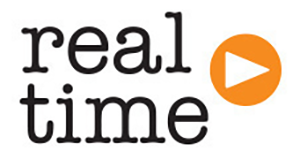 Real Time is one of the most established and successful participatory media organisations in the UK, with an international reputation for participatory video and creative media production. In 1997 we published a book on Participatory Video, a comprehensive guide to using video in group development work.
Real Time is one of the most established and successful participatory media organisations in the UK, with an international reputation for participatory video and creative media production. In 1997 we published a book on Participatory Video, a comprehensive guide to using video in group development work.
Used in a participatory way, video can be a powerful tool, which allows clients to examine the world around them, gain awareness of their situation and become more actively involved in decisions which affect their lives. Developed over more than 35 years in a wide range of settings, it involves group’s in communicating their own stories on video. In turn, this can build awareness about what prevents change happening, and what needs to be done.
Real Time specialises in participatory engagement and communication, using workshops, projects, training, production and screenings to make visual methods and creative digital technology available for everyone. One of Real Time’s key strengths is its experience to ensure that the complex messages that emerge from the experience of development can be effectively communicated, through visual media, to a wider audience, including key decision-makers.
Real Time uses creative audiovisual story-telling methods to stimulate deeper exploration of reality. This opens space for all views, and enables seeing as well as hearing. Real Time has extensive experience in managing complex communication projects including many different stakeholders, communities and organisations often in an international context.
Current projects include work with young people, people recovering from mental ill health, older people and people with learning disabilities, asylum seekers and refugees.
Real Time’s co founder Dr Jackie Shaw’s PhD “Contextualising empowerment practice” Based on Real Time’s work outlines the way in which the approach benefits communities. “Participatory media as a facilitated empowerment process led to new social becoming by opening conducive social spaces, mediating interactions, catalysing group action and re-positioning participants”. She describes how Real time’s processes lead to new “becoming’s” that participants gains did not lie merely in representation of their existing identity but through doing (activities) they shifted the social equilibrium for participants.
Real Time’s participatory video is a tried and tested approach to unearthing novel insight. In turn, this can build awareness about what prevents change happening, and what needs to be done. However, collaborative storytelling offers further value.
All cultures use stories to make sense of their lives and forge a common bond. Stories provide shared understanding, which in turns influence how we think and behave. Organisations and communities can be restricted by external narratives.
Real Time uses videoing and playback exercises, as well as other creative storytelling methods to stimulate deeper exploration of reality. This opens space for all views, and enables seeing as well as hearing. Stepping back from experience and discussing the issues together means new stories can emerge that encompass both causes and better solutions.
Moreover, in authoring their own pathways forward, people are more likely to act to bring about change than when it seems imposed. Participatory visual (research) processes such as participatory video can be a way of building constructive relationships between a range of interest groups and purposeful collaboration. Real time opens dialogue between different interests.
Sustainable solutions come through working in partnership towards improvements – a process of small steps with successes and setbacks which require iterative and ongoing action and reflection.
Real Time has an ongoing programme of training workshops and projects. In 2017 Real Time worked with over 500 people on a variety of participatory video and visual methods projects including work with young people, people with mental health issues, people with disabilities, older people, the homeless and refugees and asylum seekers.
